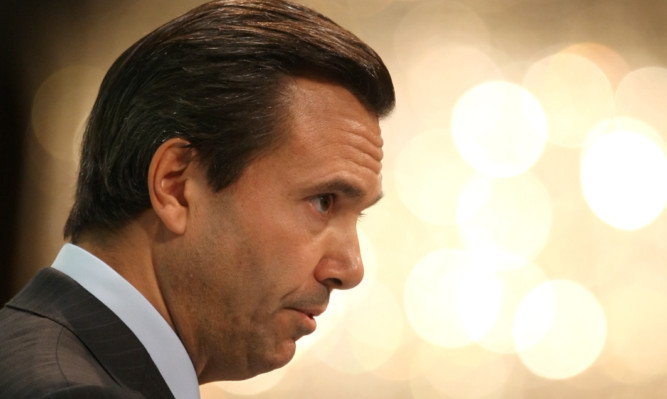Banking group Lloyds will pay fines totalling £218 million to UK and US authorities after yesterday admitting the rigging of interest-rate benchmarks and shortchanging the Bank of England.
The Edinburgh-registered firm said the “manipulation” had occurred between May 2006 and 2009, and stressed the individual employees concerned had since left, been suspended or were subject to disciplinary proceedings.
Around £70m of the fine relates to Lloyds’ attempts to reduce fees due to the Bank of England following its £20 billion bailout at the height of the economic crisis. Lloyds will also pay the Bank £7.8m in compensation for fees lost as a result.
The group said the actions of those responsible were “totally unacceptable and unrepresentative of the cultural changes that the group has implemented”.
In a letter to governor Mark Carney earlier this month but newly-published yesterday, Lloyds chairman Lord Blackwell wrote: “This was truly shocking conduct, undertaken when the bank was on a lifeline of public support”.
In turn, Dr Carney told Lord Blackwell that the Prudential Regulation Authority would consider whether further action should be taken in relation to the firms in question or those individuals involved.
“Such manipulation is highly reprehensible, clearly unlawful and may amount to criminal conduct on the part of the individuals involved,” the governor said.
Chief executive Antnio Horta-Osrio said that he and his management team were determined to make Lloyds “a company of the highest integrity and standards”.
Since the rigging took place Lloyds has closed down most of its investment banking operations and reduced the group’s overseas operations from more than 30 countries to fewer than 10.
“The behaviours identified by these investigations are absolutely unacceptable,” he said.
“We take the findings of these investigations, which relate to issues from some years ago, extremely seriously.
“Together, the board and the group’s management team have taken vigorous action over the last three years to prevent this kind of behaviour, through closing or reducing our legacy investment banking activities.”
Lloyds, in which the taxpayer still holds a 24% stake, is just the latest of the major lenders to be fined for rigging Libor including Barclays and RBS, which were hit with £290m and £391m settlements respectively.
Financial Conduct Authority director of enforcement and financial crime Tracey McDermott said Lloyds’ predecessor companies had been a “significant beneficiary” of bailout funds.
“Colluding to benefit the firms at the expense, ultimately, of the UK taxpayer was unacceptable,” she said.
“This falls well short of the standards the FCA and the market is entitled to expect from regulated firms.”
Lloyds TSB acquired HBOS in 2009 to form the Lloyds Banking Group, but the FCA found the Bank of Scotland had manipulated its sterling and US dollar Libor submissions as a result of at least two management directives in October 2008.
The watchdog added that there was a culture on money market desks of seeking to take a financial advantage wherever possible.
The FCA quoted an example in July 2007 when a manager was informed by a Lloyds trader about a request made to another Lloyds trader for a low Japanese yen Libor.
The Lloyds trader commented that “every little helps . . . ”
The Lloyds manager replied: “Absolutely, every little helps.”
